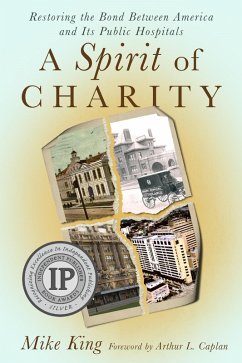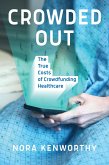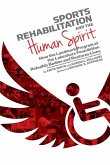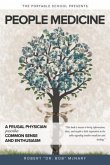Most Americans have historically viewed the nation's great public hospitals - Charity, Grady, Cook County, and Parkland among them - as refuges of last resort for poor and uninsured people. But these iconic institutions - some closed, some renamed, others rebuilt -- have also served as a safety valve for the nation's highly profitable medical industrial complex. They are a key to understanding the evolution of America's $3 trillion health care system - not just for the poor, but the affluent as well, argues veteran journalist Mike King in a forthcoming new book, A Spirit of Charity: Restoring the Bond between America and Its Public Hospitals, scheduled for publication on May 31.In a country that has yet to determine whether access to basic medical care is a right or an earned privilege, America's public hospitals bear the burden of that indecision, writes King. "The historic bond between these hospitals and the governments that gave them birth is being challenged in an era of fiscal austerity and reliance on marketplace solutions to health care spending. That is especially so in those states whose hostility to the federal government has caused them to forgo billions of dollars in funding offered under the Affordable Care Act that could have provided coverage for millions of newly insured poor," King writes. The book traces the history and challenges at several large public hospitals around the country, "civic fixtures that once were the most important medical institutions in the community, but places now that Americans with good health insurance would rather avoid," the book points out. One of them, Grady Memorial Hospital in Atlanta, has earned a reputation as a great teaching hospital with a mission of caring for the urban poor that dates back to 1892. It also was a place so rife with political and financial mismanagement that it nearly had to close its doors in 2007. King, an award-winning science and medicine writer, editor and commentator, chose Grady as the primary focus of the book, he said, because its role in the community is so vital, and so misunderstood. "Upwards of 435,000 outpatients stream through Grady each year (the equivalent of every man, woman, and child who lives in the city of Atlanta), with more than 100,000 of them entering through the emergency room. Three quarters of them are black. More than half have no insurance or they are covered by the state's notoriously stingy Medicaid program. As a result, the hospital gets stuck with a bill of about $100 million a year for the charity care it provides," King writes in the book's introduction. Public hospitals around the South face similar challenges. Miami's Jackson Memorial Hospital had to fend off state efforts to sell it or turn over management to a for-profit company. For-profit competitors there and elsewhere in the state are siphoning off insured trauma patients and leaving public hospitals to take care for the uninsured gunshot wound victims and others gravely injured by violence. Parkland Memorial Hospital in Dallas recently opened a $1.3 billion state-of-the-art replacement facility, but its future is uncertain because Texas has more uninsured residents than any other state and its leaders have refused to expand Medicaid. And while state officials often turn their backs on these facilities, the chronic disease rates in the South - particularly among minorities and the poor - are higher than any other region of the country. More recently, the South's major cities have led the nation in the rate of new cases of HIV/AIDS. Yet, these places have a remarkable ability to survive and to adapt to the marketplace changes forced upon them. Chicago's Cook County Hospital, for instance, since renamed, has combined services with local primary care clinics to better manage Medicaid patients and keep them out of the hospital. Other public hospitals are experimenting with innovative new strategies that bring them more insured patients without abandoning their mission of caring for the poor. Through an examination of their unique history and incisive analysis of policy successes and failures, A Spirit of Charity reveals the remarkable story of why public hospitals matter and why they should play a more prominent role in our public policy discussions.
Dieser Download kann aus rechtlichen Gründen nur mit Rechnungsadresse in A, B, BG, CY, CZ, D, DK, EW, E, FIN, F, GR, HR, H, IRL, I, LT, L, LR, M, NL, PL, P, R, S, SLO, SK ausgeliefert werden.









